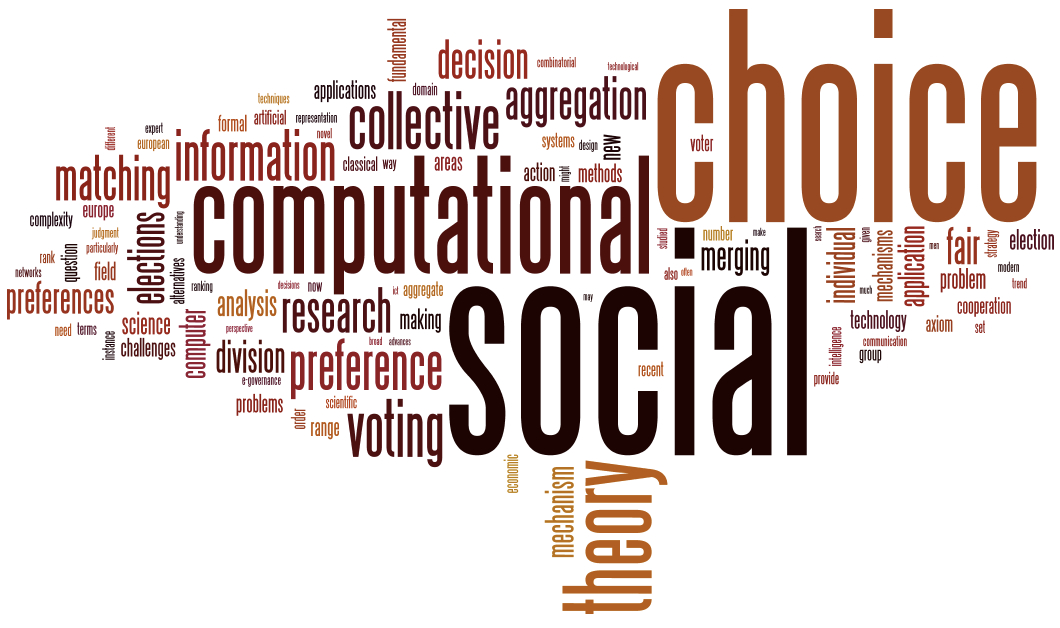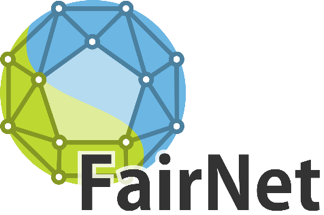COST Action IC1205 – Computational Social Choice

Project Description
Computational social choice is a rapidly evolving research trend concerned with
the design and analysis of methods for collective decision making.
It combines methods from computer science with insights from economic theory.
COST Action IC1205 on Computational Social Choice is a European research network
that has been set up to provide a common platform for research in this field
across Europe and beyond.
Within this project, we focus on the specification and verification of voting rules.
A voting rule, as a method to combine individual preferences to an aggregated election
result, is part of the fundamental democratic principles.
It is thus vital that voting rules are working as intended.
Existing voting rules have shown undesired and sometimes surprising properties
(e.g., negative voting weights in federal elections in Germany) — for more
complicated, newly designed voting rules which become possible due to computer
assistance in the vote counting process, these issues are likely to emerge as well.
The goal of this project is to develop formal verification techniques which allow
to check properties of voting rules without the huge overhead of user interaction
needed in full functional verification. The resulting methodology could then be used
in an iterative design and implementation process of new voting rules.
COST Action
Findings within this project are furthermore applied within FairNet RIC:
Cooperation FairNet RIC - FairNet Research and Innovation Center

The FairNet Research and Innovation Center aims at enabling an internet that offers a variety of
value-oriented services among which consumers can choose from easy to manage, transparent, and reliable options.
Values are abstract concepts of the desirable and exist on an individual, economic as well as on a business level.
Internet-based services are value-based and this often results in value conflicts between consumers, providers,
and governance-stakeholders.
These close interdependencies between informative, social, regulatory and economic aspects constitute a challenge
for research and practice.
In the FairNet RIC, researchers from various disciplines – computer science, information systems, psychology,
business administration, economics, ethics and law – collaborate interdisciplinary to facilitate the socio-technical
design of value-oriented Internet-based services.
FairNet RIC
People
Staff
Affiliate
Students
If you are a KIT student in computer science and interested in writing your thesis within the scope of this project,
feel free to contact Michael Kirsten.
We also have open positions for student assistants ("HiWi") working on the project.
Publications
2019
| Title |
Author(s) |
Source |
| Formal Property-Oriented Design of
Voting Rules Using Composable Modules | Karsten Diekhoff, Michael Kirsten, and Jonas Krämer | 6th International Conference on Algorithmic
Decision Theory (ADT 2019), Part Short Papers |
| GI Elections with POLYAS: a Road to End-to-End
Verifiable Elections | Bernhard Beckert, Achim Brelle, Rüdiger Grimm, Nicolas Huber, Michael Kirsten, Ralf Küsters, Jörn Müller‑Quade, Maximilian Noppel, Kai Reinhard, Jonas Schwab, Rebecca Schwerdt, Tomasz Truderung, Melanie Volkamer, and Cornelia Winter | Fourth International Joint Conference on Electronic
Voting (E-Vote-ID 2019) |


